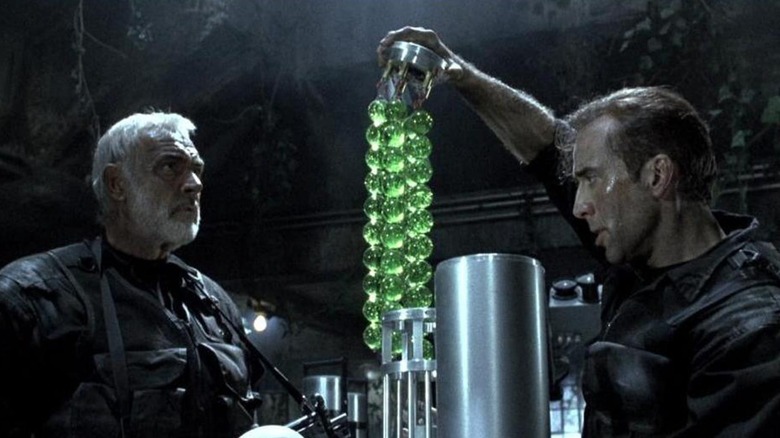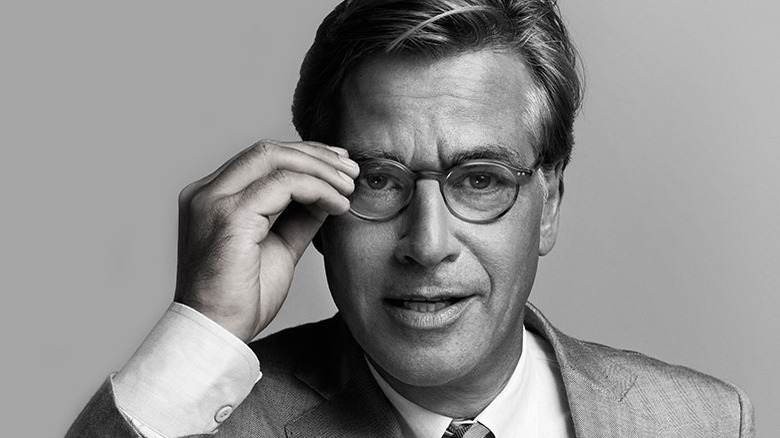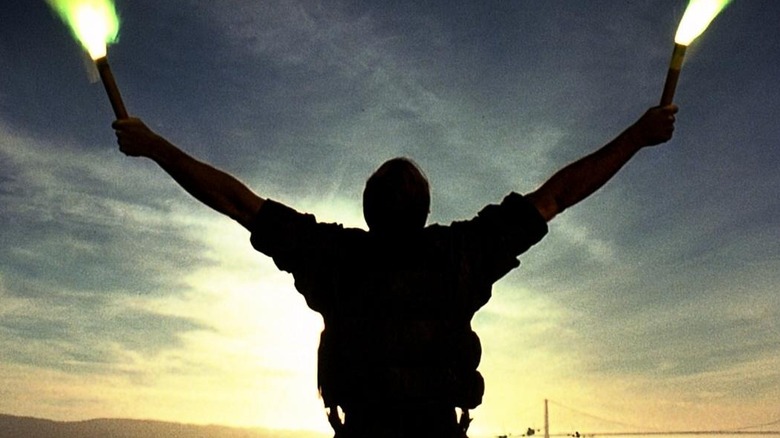Two Hollywood Heavyweights Went Uncredited For Their Work On The Rock
I wouldn't exactly call myself a fan of Michael Bay's work — his "Transformers" saga will forever haunt my nightmares — but there are two films of his that I genuinely enjoy. The first is "The Island," which in the tradition of great science fiction has a killer hook and a great cast (Ewan McGregor, Scarlett Johansson, Steve Buscemi, Sean Bean, AND Djimon Hounsou? Wow). The second is "The Rock," which features yet another great ensemble consisting of Nicolas Cage, Sean Connery, and Ed Harris. It also boasts the kind of high-concept action pitch that's rarely seen nowadays; a chemist and a SAS agent must team up to stop a chemical attack from being launched by another group of American soldiers on Alcatraz Island. It's the kind of film where you know it's ridiculous, but it's part of the charm.
If you love "The Rock" you should thank David Weisberg and Douglas Cook. The duo came up with the original concept for "The Rock" and co-wrote the screenplay with Mark Rosner. However, Bay was displeased by their work, and said as much: "Weisberg and Cook had a cool idea, but if you took either draft, it would have been a bad movie ... Weisberg and Cook had the idea I set out to do, but not the movie I made." Bay decided to bring in some screenwriters to touch up the script — and two of the writers, while uncredited, were pretty big names.
Politics and punch-ups
Bay, alongside producers Jerry Bruckheimer and Don Simpson, hired a collection of screenwriters to work on "The Rock." Two of them happened to be future Hollywood giants: Aaron Sorkin ("Being The Ricardos") and Quentin Tarantino ("Once Upon A Time In Hollywood"). Jonathan Hensleigh ("Die Hard With A Vengeance", "The Punisher") was also brought in.
An article from The Telegraph dug into what both Sorkin and Tarantino brought to the table. Sorkin provided most of the witty dialogue between Connery's John Mason and Cage's Stan Goodspeed (yes that is his character's name), which also dealt with the sociopolitical atmosphere of the time — a trick that would carry over to Sorkin's work on "The West Wing" and "Trial of the Chicago Seven." And Tarantino cooked up action sequences that pay homage to his own films — tell me the scene where Goodspeed has to inject himself with a needle doesn't remind you of a certain scene in a certain Tarantino flick. But Hensleigh, despite providing the majority of what appeared on screen, would be less than pleased with the film's final credits — and he wouldn't be the only one.
Credit where credit's due
Bay was so unhappy with the final credits of "The Rock" that he wrote a heated letter to the Writers' Guild of America decrying their decision and demanding that Hensleigh receive credit for the work he provided.
"I have more intimate firsthand knowledge of the evolution of this screenplay than any individual involved in the project with the exception of producer Jerry Bruckheimer. Thus, I can confidently, knowledgeably state that this result is a sham, a travesty. It embarrasses me ... No objective person could read Mr. Hensleigh's shooting draft, compare it to the previous writers' drafts and come to this conclusion."
Say whatever you will about Bay, but the fact that he was willing to make sure Hensleigh got the credit he deserved is a rarity in the movie business. And perhaps he was inspired by the way Sean Connery stuck up for him during the filming of "The Rock."


